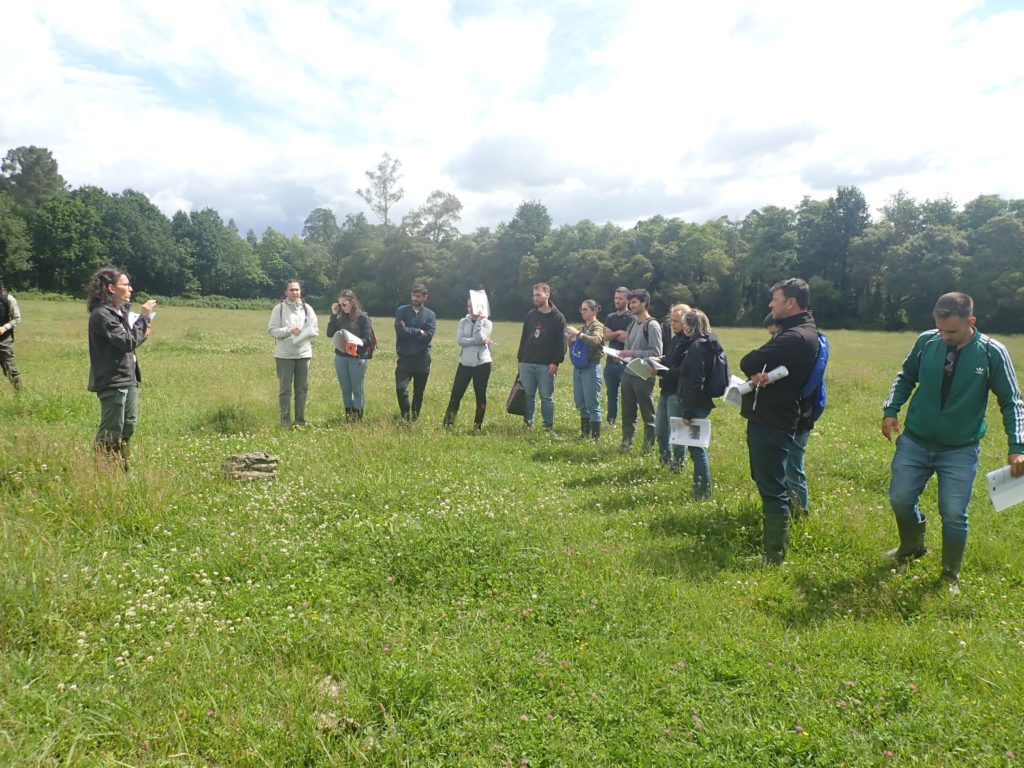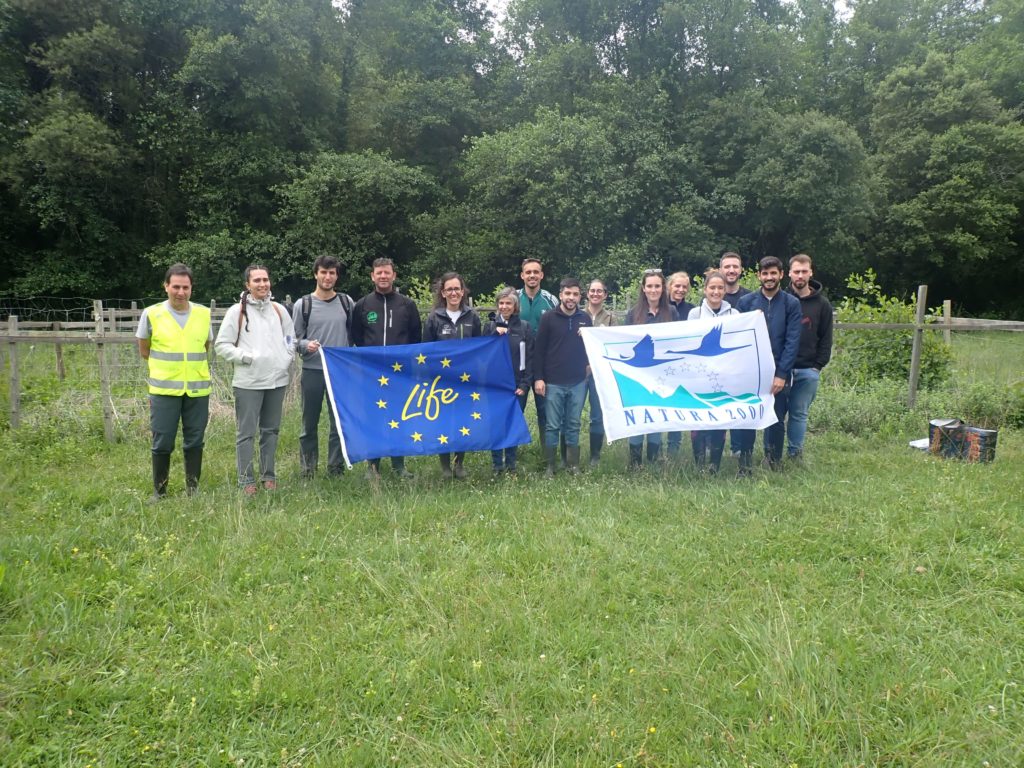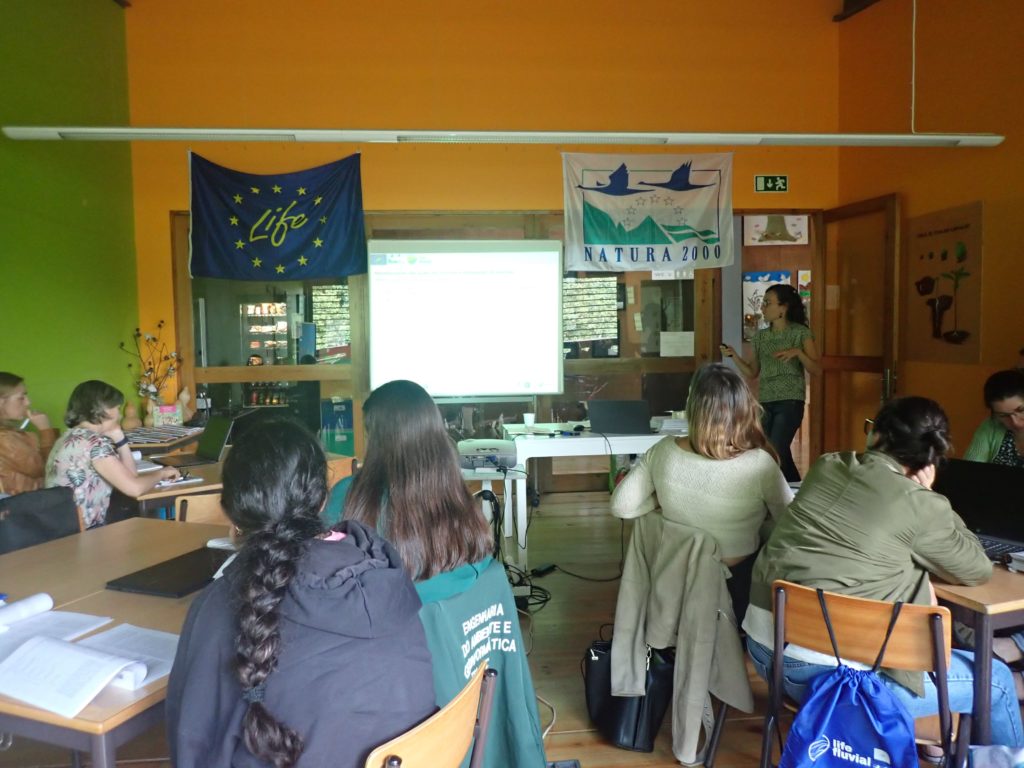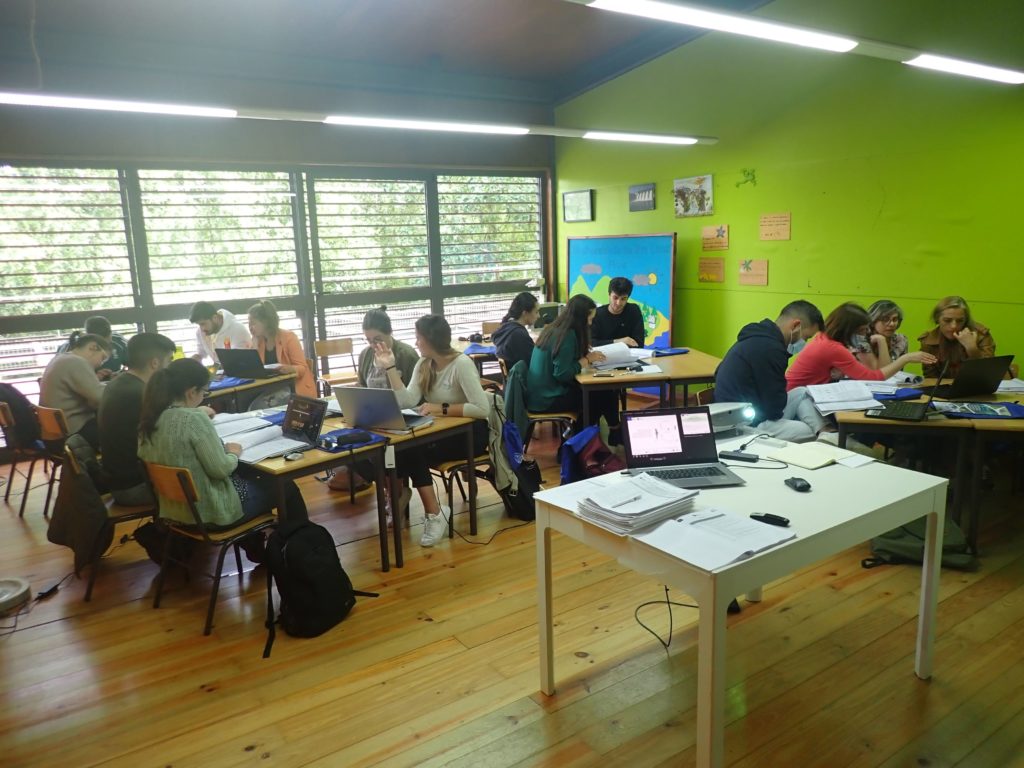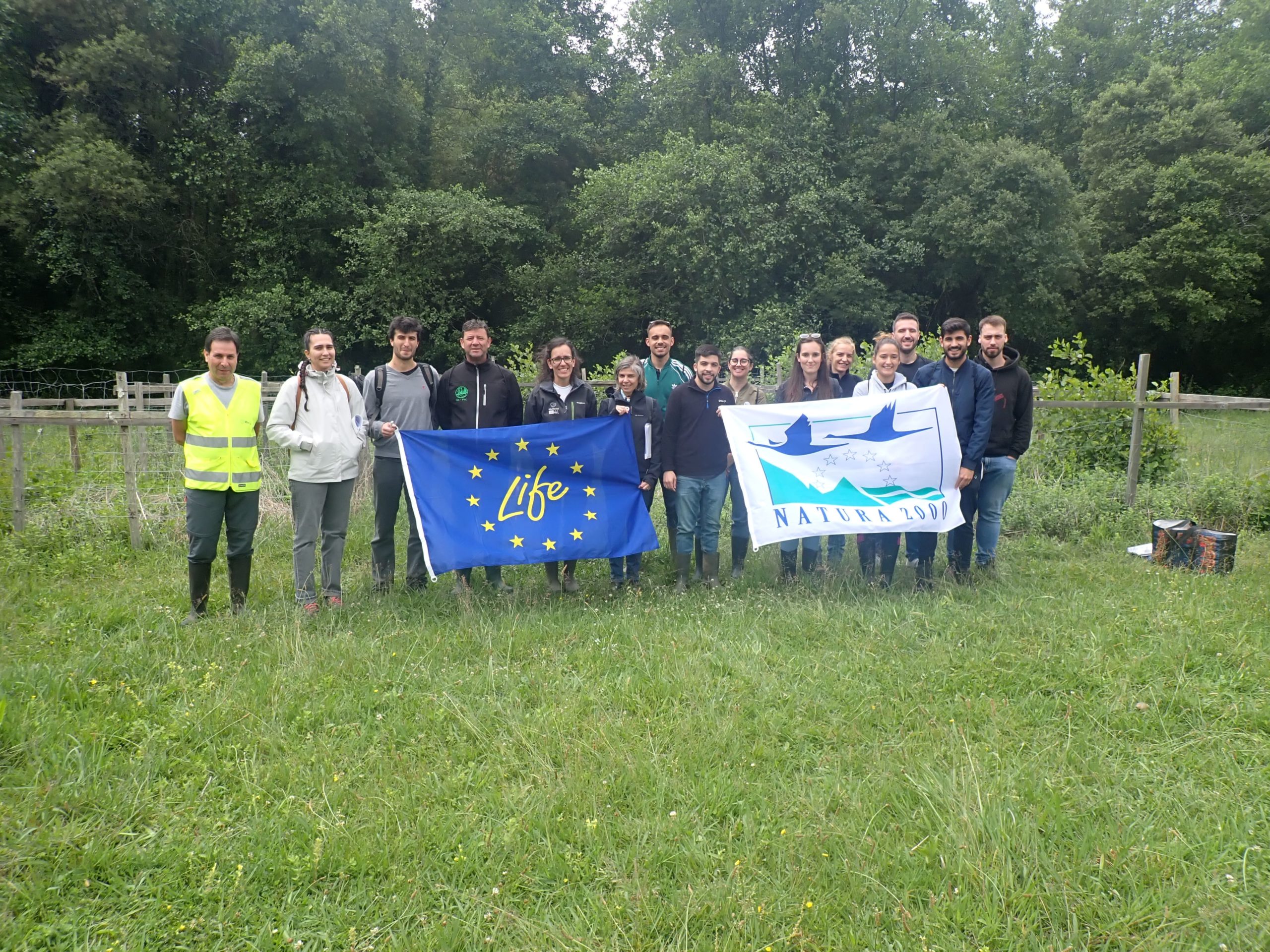On 23 and 24 May 2022, the Workshop “Conservation and Ecological Restoration of Riverine Forests – multiple challenges in river corridors” was held in the Protected Landscape of the Bertiandos and São Pedro de Arcos Lagoons, organised by the Portuguese team of the LIFE FLUVIAL project (LIFE16 NAT/ES/000771), of the Instituto Superior de Agronomia (Centre for Forestry Studies), in collaboration with the Municipality of Ponte de Lima (CMPL) and the Escola Superior de Agricultura de Ponte de Lima (ESAPL).
This specialised dissemination day was attended by 21 participants, including technicians from CMPL and the municipalities of Paredes de Coura and Monção, as well as ESAPL teachers and students.
The reception of the participants and the welcome session by Gonçalo Rodrigues, Councillor of the Municipality of Ponte de Lima: Environment and Green Spaces | Sport, Leisure and Youth | Forests and Biodiversity | Public Works, took place on May 23rd, at the Environmental Interpretation Centre of the Bertiandos and São Pedro de Arcos Lagoons (coordinates: 41°45’52.48 “N / 8°38’33.26 “W).
During the afternoon of the 23rd, the LIFE FLUVIAL team, coordinated by Dr. Patricia María Rodríguez-González, researcher at the Centre for Forestry Studies of the Instituto Superior de Agronomía, developed the first part of the Workshop in which several topics related to riparian forests were introduced: characterisation, species and structure, main ecological processes (e.g. natural regeneration), main threats and challenges (e.g. biological invasions), impacts of degradation, assessment and monitoring and, finally, ecological restoration. Class activities included a combination of expository and participatory workshops with exercises carried out by groups of students with different backgrounds. The day ended with a convivial dinner.
During the 24th of May, field work was carried out in the intervention areas of the LIFE FLUVIAL project.
During this second day, several practical activities were carried out by groups of students through case studies based on real situations encountered during the implementation of the project actions. These included the characterisation of riparian and swamp forests, the identification of indicators of degradation of groves affected by the Phytophthora x alni disease, the monitoring of ecological restoration actions at different scales, the evaluation of tree and herbaceous hygrophilous habitats, as well as the application of different techniques for the control and elimination of invasive alien species.
Contacts: cef.isa.life@gmail.com
